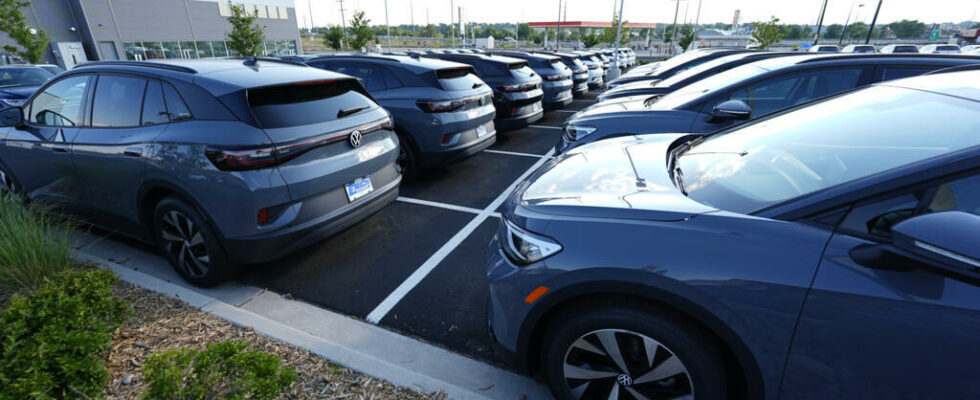New CO2 emission standards came into force in the EU on January 1, 2025. Additional pressure is being placed on European automobile groups, with the risk of fines. Only one solution for them: boost sales of electric vehicles. A real challenge in a market that has been declining for several months
2 mins
While the EU has just lowered its CO2 emissions ceiling on January 1, at least a fifth of the sales of most manufacturers automobiles will now have to be sales of electric vehicles to avoid heavy fines. If European car manufacturers fail to meet the targets set for 2025, they could face fines estimated at 15 billion euros in total.
But over the first eleven months of 2024, electric car sales represented just over 13% of total sales in Europe. This worries manufacturers. For them to escape the fines provided for by the new European regulations, one in five cars sold will have to be electric.
Risk of loss of investment capacity
ACEA, the sector’s lobby in Europe, is asking Brussels not to apply these heavy penalties. He estimates that this could generate a loss of nearly 16 billion euros in investment capacity for manufacturers. Thanks to the rise of electricity and the improvement of thermal engines, manufacturers have so far respected the so-called CAFE (Corporate Average Fuel Economy) standard, which requires them, under penalty of heavy fines, to respect an annual average of emissions per car sold.
According to the latest statistics from ACEA, with nearly 125,000 units sold, electric cars declined in October in the main markets (Germany, France, Italy) but remained stable in countries already well electrified (Netherlands, Denmark, Belgium). In France, the reduction in the ecological bonus, recorded in extremis by the Barnier government and coming into force on January 1, will not help revive sales.
Also readElectric vehicles: faced with the market slowdown, manufacturers are lowering their ambitions
Beyond electric cars, sales of thermal vehicles are also at half mast. Which also raises the question of factory production overcapacity. Volkswagen plans to cut 35,000 jobs in Germany by 2030, or 30% of its workforce, and Stellantis sites are only operating at two-thirds of their capacity.
